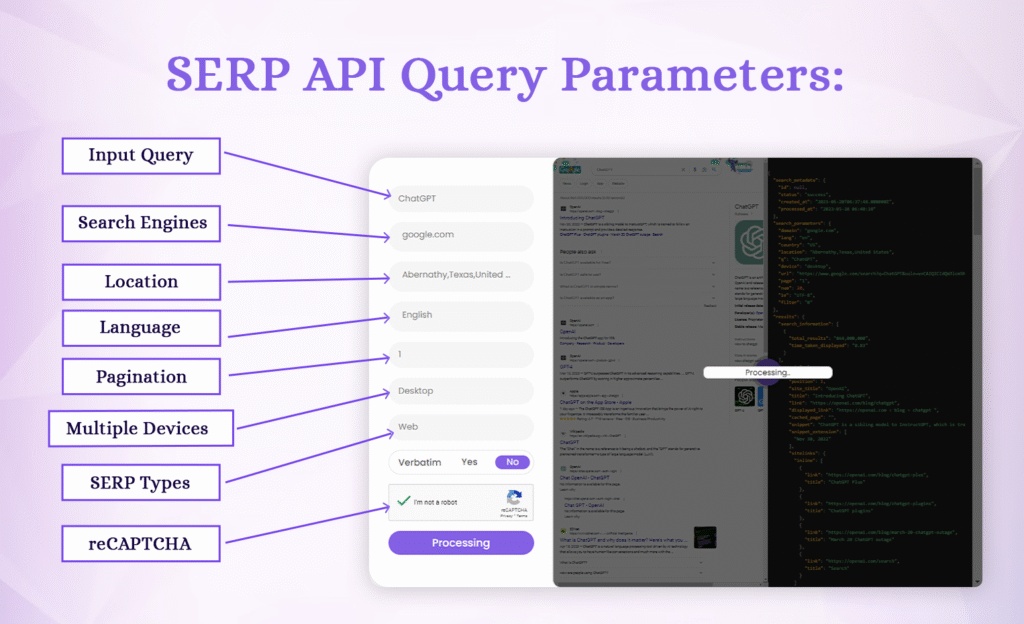Get the Best Results: Making Your SERP API Queries Shine
3 min read
3 min read

Table of Contents
Table of Contents
In the digital era, programmatically extracting search engine results is vital for SEO, market research, and competitive analysis. The SERP API is the solution. It empowers developers to efficiently and accurately access search engine data.
In this blog, we’ll dive into SERP API query parameters. We’ll learn how to create effective search queries, filter and refine results, and explore location, device, and language-specific options.

To harness the power of SERP APIs effectively, you need to construct search queries that precisely reflect your research objectives.
The SERP API allows you to fine-tune your queries by specifying various parameters, including:
You can choose the search engine you want to target, such as Google, Bing, Yahoo, or even more specialized engines.
Specify the keywords or phrases you want to search for. You can input a single keyword or a list of keywords for more complex queries.
Control the number of results you want to retrieve by specifying the page number and results per page.
Choose between web search, image search, news search, and more, depending on your needs.
Once you’ve submitted your search query, SERP APIs offer powerful filtering and refinement options to extract the most relevant data.
These parameters allow you to fine-tune your results based on factors like:
Narrow down results to a specific time frame, enabling you to analyze trends or track changes in search results over time.
Narrow down results based on specific topics, domains, or content types to gain more targeted and pertinent insights.
Arrange results based on relevance, date, or other factors to prioritize the most critical data.
Include or exclude specific websites or domains in your search results to obtain more precise information.
SERP APIs also offer the flexibility to target specific locations, devices, and languages for your queries.
This is particularly valuable for businesses that operate internationally or want to understand how their website or content ranks in different regions.
Specify the location (country, city, or region) you want to target.
This is invaluable for businesses looking to understand their search engine performance in different geographic markets.
Tailor your query to focus on particular devices, such as desktop, mobile, or tablet.
This is important as search results can vary depending on the device used.
Choose the language you want to retrieve search results. This is crucial for businesses targeting multilingual markets or for content analysis across different languages.
SERP API query parameters empower developers, marketers, and researchers to construct highly tailored search queries, filter and refine results, and explore location-specific, device-specific, and language-specific data.
Whether you aim to improve your SEO strategy, gather competitive intelligence, or analyze market trends, a deep understanding of these parameters is essential to extract valuable insights from search engine results.
By mastering the art of SERP API query parameters, you can unlock the potential of search engine data, gain a competitive edge, and make data-driven decisions that drive success in the digital landscape. So, dive into SERP APIs and discover the information they can offer.